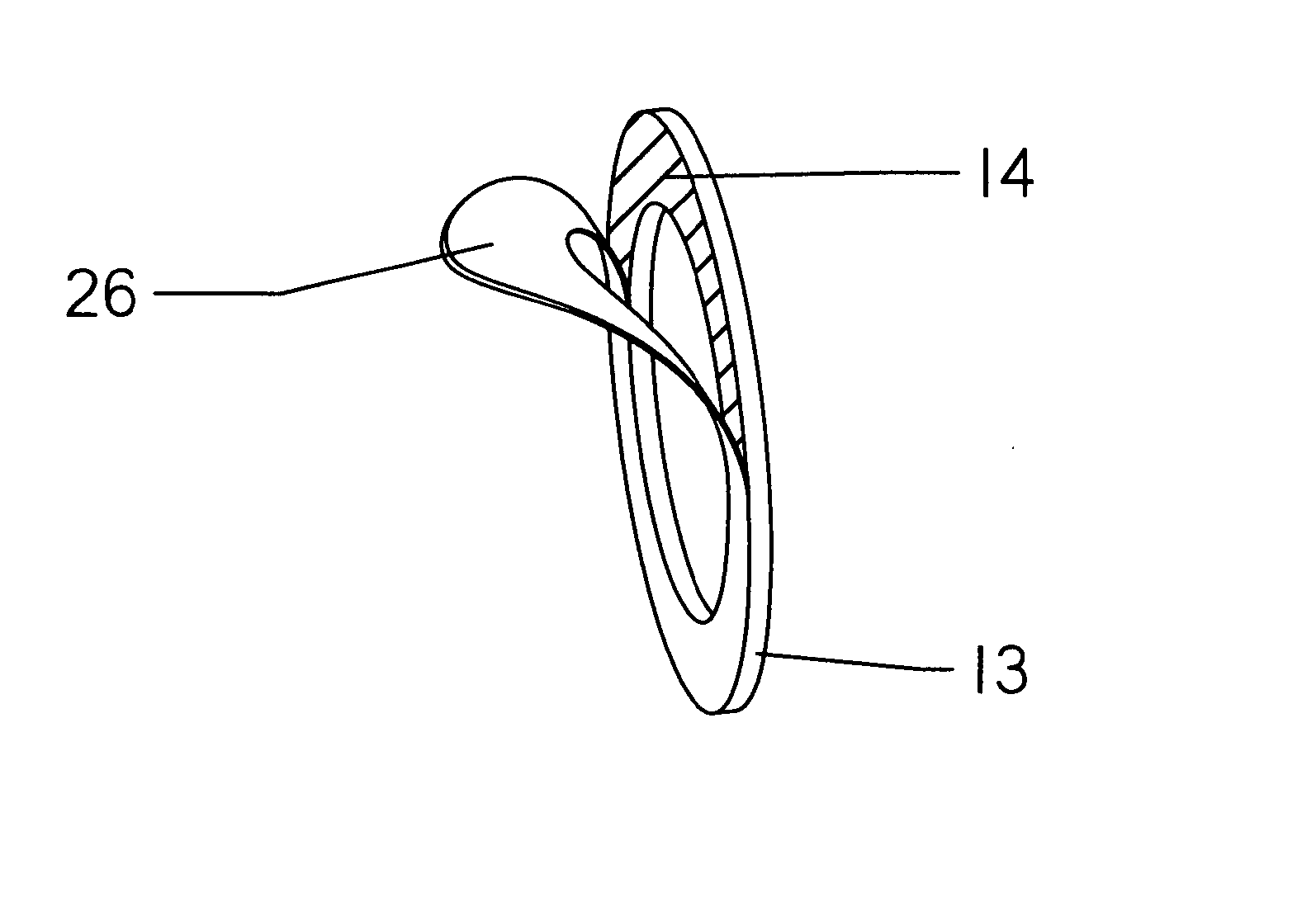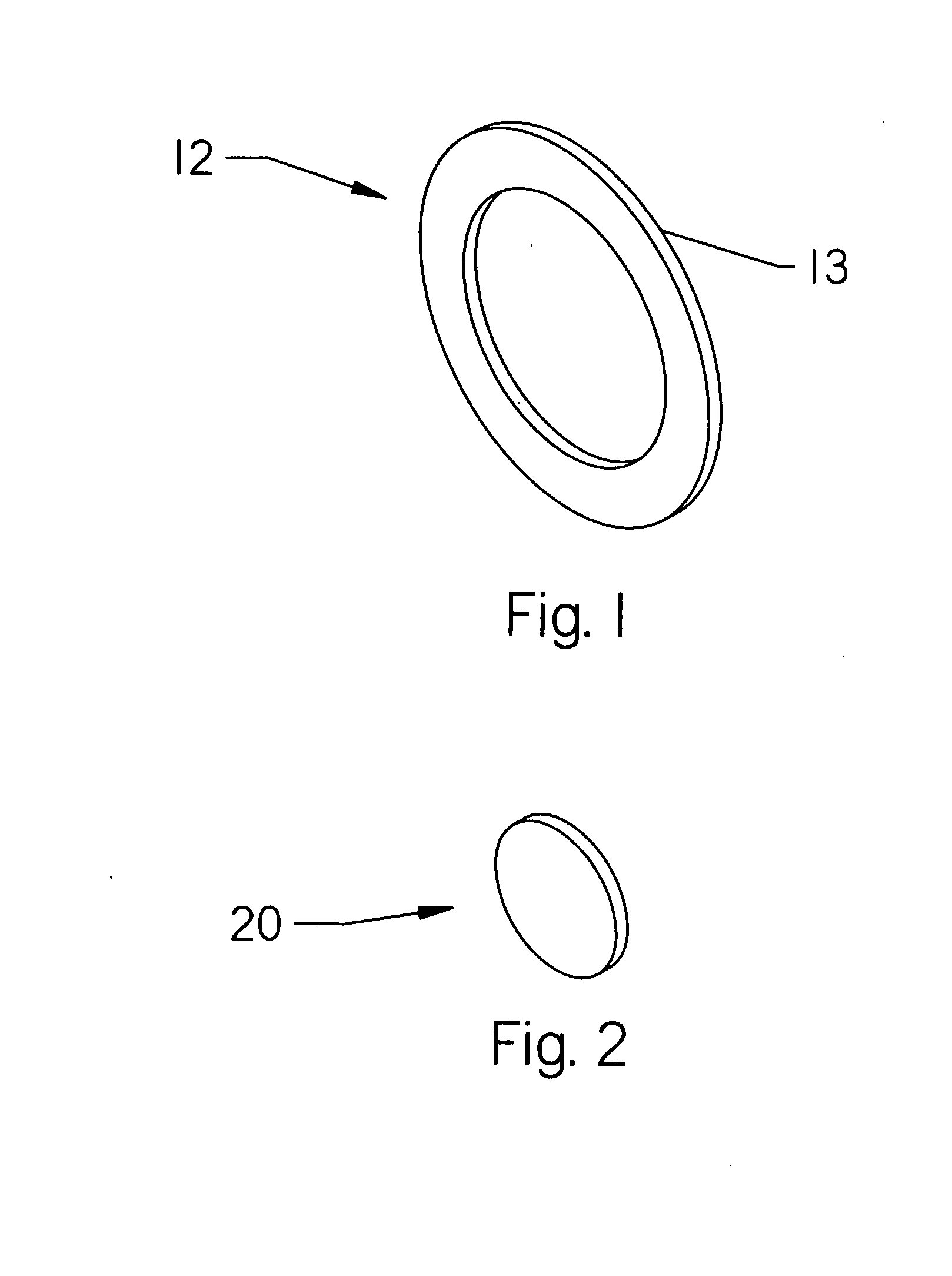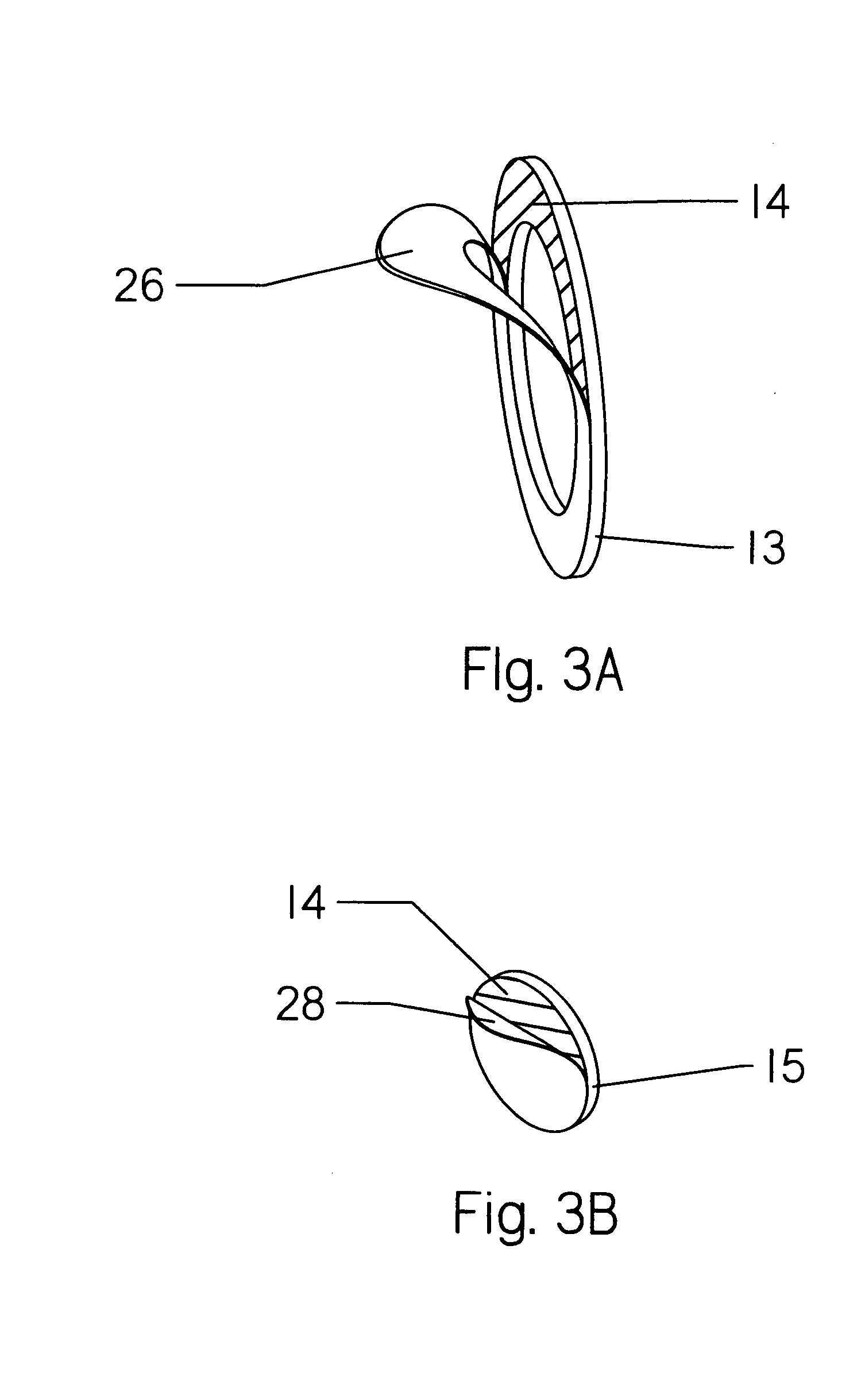Disc brake pad cushions
a disc brake pad and disc brake technology, applied in the field of disc brake pads, can solve the problems of large heat generation between disc brake pads and brake rotors during braking, adversely affecting mechanical and hydraulic systems, and affecting the performance of brake discs, so as to reduce excessive and uneven heat, reduce friction, and simple and cost-effective
- Summary
- Abstract
- Description
- Claims
- Application Information
AI Technical Summary
Benefits of technology
Problems solved by technology
Method used
Image
Examples
Embodiment Construction
[0038] Severe localized frictional drag can develop in disc brakes as brake rotor irregularities, called high spots, are forced between the brake pads of disc brakes during braking. This can lead to extreme or excessive heating of the rotor, and the excessive heat can be the underlying cause of extended stopping distance, wheel lock-up, accelerated brake wear, tire wear, and other driving safety and consumer issues. Eliminating this source of excessive heating can resolve these problems and other problems associated with the excessive heat caused by high spots on brake rotors.
[0039] Brake systems operate at varying degrees of efficiency until friction interface temperatures reach an efficiency threshold at from about 205 C to about 232 C. Converting to the Fahrenheit scale, these temperatures would be from about 400 F to about 450 F. As interface temperatures continue to climb above this efficiency threshold, brake efficiency drops with the rising temperature.
[0040] The term exces...
PUM
 Login to View More
Login to View More Abstract
Description
Claims
Application Information
 Login to View More
Login to View More - R&D
- Intellectual Property
- Life Sciences
- Materials
- Tech Scout
- Unparalleled Data Quality
- Higher Quality Content
- 60% Fewer Hallucinations
Browse by: Latest US Patents, China's latest patents, Technical Efficacy Thesaurus, Application Domain, Technology Topic, Popular Technical Reports.
© 2025 PatSnap. All rights reserved.Legal|Privacy policy|Modern Slavery Act Transparency Statement|Sitemap|About US| Contact US: help@patsnap.com



